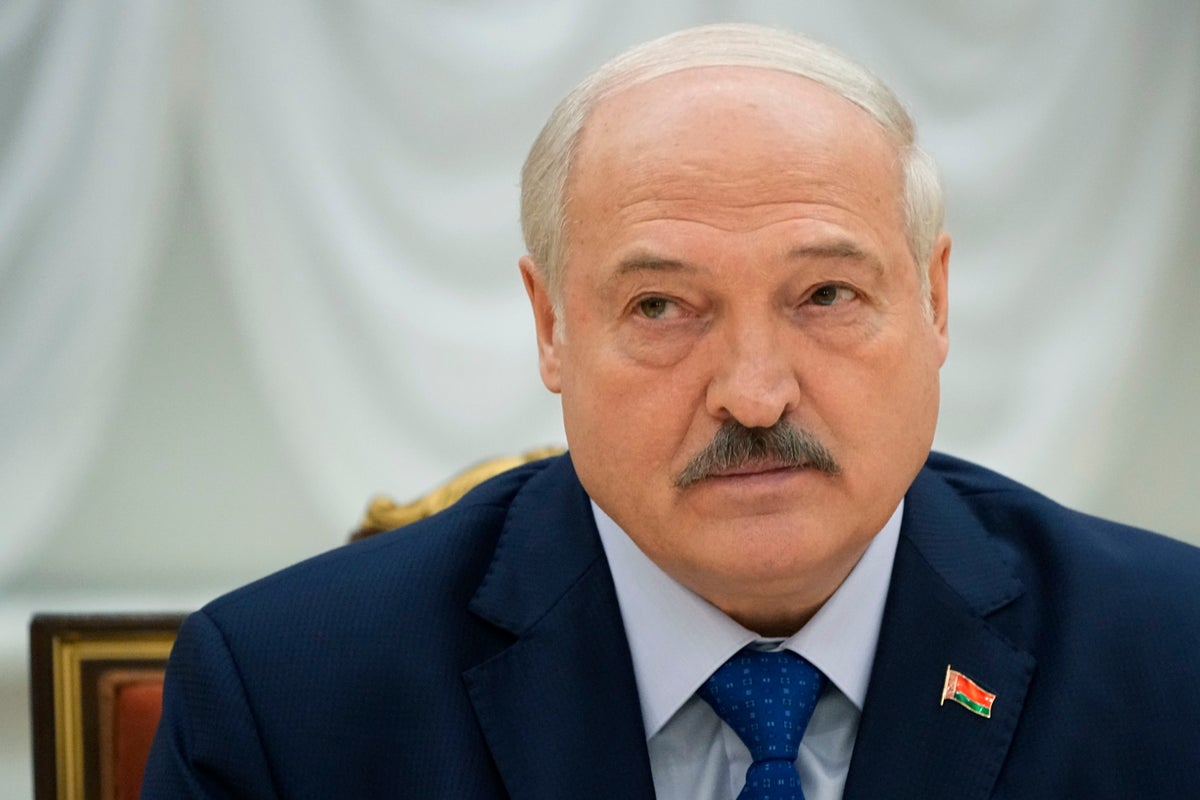
A former member of Belarus President Aleksander Lukashenko’s special security forces is to face trial in Switzerland next month for the forced disappearances of political opponents in the late 1990s, rights groups said Wednesday.
Activists called it a “watershed moment" in international justice that could trigger prosecutions abroad of other Belarus officials — including Lukashenko, whose regime has come under renewed criticism over a crackdown against opposition leaders that began in August 2020 and support for Russia's military invasion of Ukraine last year, among other things.
The case against Yuri Harauski, a former member of a military unit known as SOBR, is due on Sept. 19-20 in the northern Swiss regional court of St. Gallen and focuses on the enforced disappearances of three people in 1999.
An extract of the court filing, obtained by The Associated Press, indicated that prosecutors planned to seek a three-year prison sentence — of which two would be suspended — against Harauski for his alleged role in the disappearances.
Harauski lives in Switzerland, where he applied for asylum in 2018, advocacy groups said. He has made high-profile confessions about his involvement in the kidnapping and murder of Lukashenko's political opponents in 1999. The motives behind the confessions were not entirely clear.
He could become the first official during Lukashenko’s 29-year rule to be convicted of crimes against regime opponents.
“For the first time, a member of Lukashenko’s murder squad stands trial for involvement in the enforced disappearances of political opponents," Belarusian opposition leader Sviatlana Tsikhanouskaya told the AP. "This groundbreaking case delivers a powerful message to the Belarus regime: no one will escape justice.”
The pending trial was brought to light by advocacy groups Trial International in Switzerland and FIDH, a Paris-based non-governmental organization whose name translates as the International Federation of Human Rights.
“This could be a watershed moment for international justice for the Belarusian regime’s crimes,” said Ilya Nuzov, FIDH’s chief for eastern Europe and central Asia. A conviction, he said, "could also establish facts which could later be used to go after those who had ordered the commission of the crime, including Lukashenko himself.”
Harauski will be tried over the enforced disappearances of Yuri Zakharenko, a former interior minister who was fired by Lukashenko in 1996; opposition leader Viktor Gonchar, and publisher Anatoly Krasovsky, the advocacy groups said in a statement.
“The case is groundbreaking: for the very first time, a Belarusian national stands trial for enforced disappearance on the basis of universal jurisdiction,” it said, referring to a legal principle that allows foreign jurisdictions to prosecute severe crimes that happened in other countries.
The prominent Belarus rights group Viasna, which last week was outlawed by the country's government as an extremist organization, welcomed the trial.
“With this first-ever prosecution of an alleged member of Lukashenka’s hit squad we are sending a strong signal," Viasna lawyer Pavel Sapelko said. "Justice for international crimes can and will be delivered, regardless of state borders or time elapsed since the crimes have been committed.”
The Belarus Ministry of Internal Affairs declined to answer questions about the case. Contacted by email, lawyer Vy Huynh, who was cited in court documents as representing Harauski, declined to comment on “ongoing criminal proceedings.”
The SOBR, a rapid response unit, was created in June 1999 and brought together about 300 personnel. Its unofficial nickname was the "Death Squadron,” and its first commander was Dmitri Pavlichenko.
Harauski has been quoted in media reports as saying that he participated in the abductions and murders of Lukashenko's opponents and said his unit had arrested the three opposition figures, and that he witnessed their assassination — but didn't kill them himself.
Court officials in the northern city of Rorschach who raised the lawsuit, and the larger cantonal, or regional, court in St. Gallen to the south, did not respond to requests for comment.
Benoit Meystre, a legal adviser for Trial International, said the trial would be held in St. Gallen for security reasons as well as the need for a larger courtroom.







